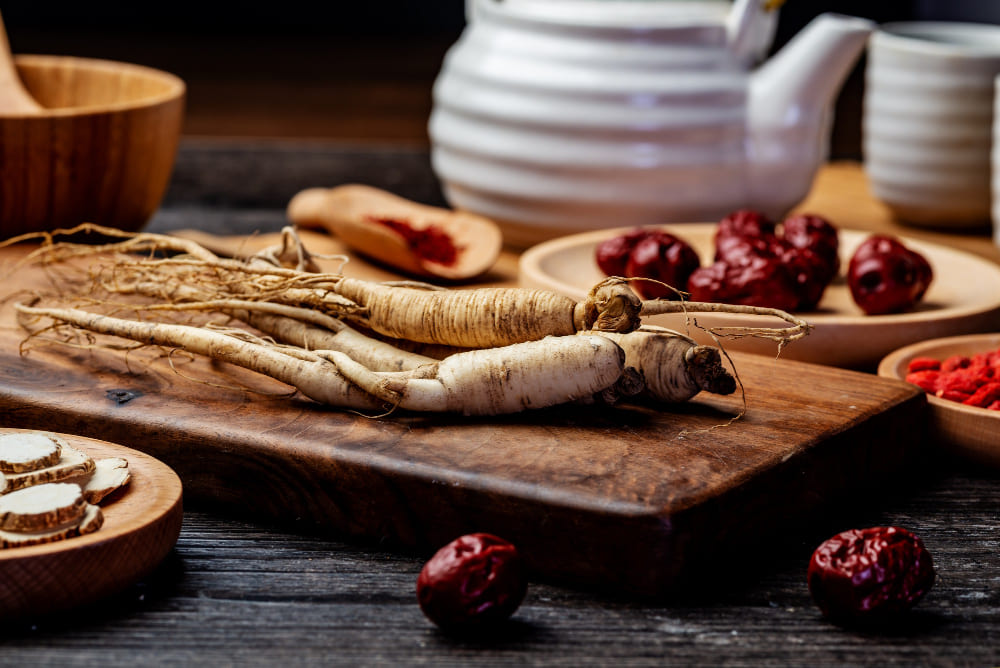The connection between the gut and the brain has garnered increasing attention in recent years. It’s a fascinating relationship that underscores the importance of holistic well-being. This article delves into how Chinese herbs can play a pivotal role in promoting digestive health and nurturing mental well-being.
Understanding the Gut-Brain Connection with Chinese Herbs

The gut-brain axis is a complex network that facilitates bidirectional communication between the gut and the brain. Numerous systems are involved in this axis, including as the immune system, endocrine system, and neurological system. Brain function can be greatly impacted by gut health, and vice versa.
Promoting Digestive Health with Chinese Herbs
Chinese medicine has long recognized the intricate connection between the gut and overall health. Herbal remedies are integral to traditional Chinese medicine (TCM) and are often prescribed to support digestion. Here are some Chinese herbs renowned for their digestive benefits:
- Ginger (姜 – Jiāng): Known for its warming properties, ginger is frequently used to alleviate digestive discomfort, including bloating, nausea, and indigestion. It stimulates digestion and helps to relieve gastrointestinal distress.
- Peppermint (薄荷 – Bòhé): Peppermint is valued for its ability to soothe digestive woes. It can ease symptoms of irritable bowel syndrome (IBS), such as abdominal pain and cramping, while also reducing gas and bloating.
- Licorice Root (甘草 – Gāncǎo): In TCM, licorice root is prized for its harmonizing properties. It can help to strengthen the stomach and promote the healing of gastric ulcers. Additionally, it has mild laxative effects, aiding in bowel regularity.
- Chamomile (洋甘菊 – Yánggānjú): Chamomile possesses anti-inflammatory and carminative properties, making it beneficial for gastrointestinal health. It can relieve spasms, reduce inflammation, and promote overall digestive comfort.
Nurturing Mental Well-being with Chinese Herbs
Some Chinese herbs have long been valued for their capacity to promote emotional equilibrium and mental health in addition to their digestive benefits. The impact of stress, anxiety, and mood disorders on gut health highlights the interdependence of the mind and body. The following plants are well-known for their ability to soothe and improve mood:
- Reishi Mushroom (灵芝 – Língzhī): Reishi is often referred to as the “king of mushrooms” in TCM due to its wide-ranging health benefits. It has adaptogenic properties, helping the body to better cope with stress. By modulating the stress response, reishi can promote a sense of calm and emotional well-being.
- Schisandra Berry (五味子 – Wǔwèizǐ): Schisandra is an adaptogenic herb known for its ability to increase resistance to stress and fatigue. It helps to regulate the hypothalamic-pituitary-adrenal (HPA) axis, which plays a crucial role in the body’s stress response. By supporting adrenal function, schisandra can enhance resilience and promote mental clarity.
- Ashwagandha (印度人参 – Yìndù rénshēn): Although not native to China, ashwagandha has found its place in traditional Chinese medicine for its remarkable adaptogenic properties. It helps to reduce cortisol levels, thereby mitigating the effects of stress on both the body and mind. Ashwagandha can improve mood, enhance cognitive function, and support overall mental well-being.
Conclusion
The gut-brain connection underscores the importance of addressing both digestive health and mental well-being in tandem. Chinese herbs offer a holistic approach to achieving this balance, supporting optimal digestion while nurturing emotional resilience. By incorporating these herbs into your wellness routine, you can promote harmony within the body and cultivate a greater sense of vitality and vitality.
